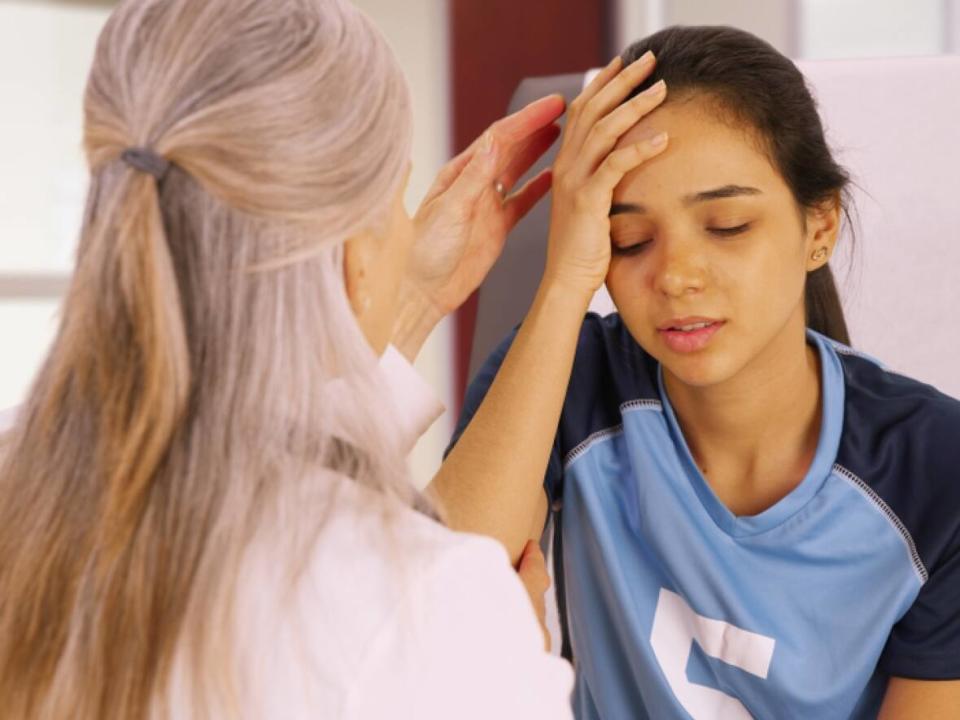UPEI researchers conducting survey on Islanders' understanding of concussions

Two UPEI researchers are conducting a survey to find out just exactly what Islanders know about concussions.
Jenna Deighan and Christina Beck are working with the university's Concussion Awareness program team to determine P.E.I. residents' general understanding of how to notice this type of brain injury and what to do to prevent lasting damage, especially when it comes to youth and children.
"Concussions are still a big public health concern," Beck said. "By knowing what people know or don't know about concussions, will then kind of help the Concussion Awareness Program figure out how we can pinpoint and fill that area, the gaps that we determine from this survey."
The survey is aimed at Islanders who are 18 or older and are involved with youth aged five to 22, such as parents, teachers, coaches and camp counsellors.
"[We ask them] if they know the protocols of when someone who has received a concussion should return to play," Deighan said.
"We ask questions like what would you like to know more about related to how concussions are diagnosed, what barriers do you think exist for treating, preventing, diagnosing, symptom-management and the prognosis of concussions, and does the organization you work for have an adequate policy or procedures regarding concussion management."
Deighan said that she hopes to share her findings with government and other organizations to develop protocols on how to best deal with this type of injury.
"There is not, I guess, enough or accurate policies and procedures regarding return to play, regarding what to do when the athlete coached has a concussion," she said.
"A lot of people don't take concussions seriously as they are. They just kind of put it off as a headache. But there are severe consequences, or can be, if concussions go untreated."
Deighan said it is estimated that about 1,500 Islanders are diagnosed with a concussion every year.

 Yahoo Finance
Yahoo Finance 